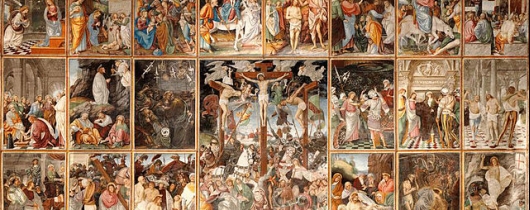Receiving the Bread of Life | Recibiendo el Pan de la Vida

Acts 7:51-8:1a; John 6:30-35
Stephen was reputed to be an excellent speaker. But most public speaking or preaching instructors would probably not recommend his closing statement to the religious leaders and others in Jerusalem as a good example of persuasive speech. Accusing your audience of being “stiff-necked…uncircumcised in heart and ears” is not going to make them more receptive to your message. Condemning them as “always opposing the Holy Spirit” and their ancestors as the murderers of prophets isn’t likely to make them converts or allies.
Like the prophets of ancient Israel, Stephen’s words were harsh, but they were words of exasperated love. In his death by stoning, he followed the example of Jesus by surrendering his spirit to God and praying for those who killed him. His love was nurtured in a community that was generous and just and which regularly came together for “the breaking of the bread” and prayer.
Receiving Jesus, the Bread of Life, nourishes and strengthens us today just as surely as it did the early church. In these days of pandemic, however, many members of the Body of Christ are on an involuntary fast from our most common experience of the Bread of Life, the Eucharist. It’s a painful time for many. When people ask me when our churches will be open and Mass can again be publicly celebrated, I can only shrug my shoulders and say, “I don’t know.” It’s a pretty helpless feeling.
But we need to remember that fasting from the Eucharist doesn’t mean fasting from Jesus. There are other ways that we can and need to receive him. This unusual time is our opportunity to look in other places in our spiritual cupboards to find him: meditation, contemplation, devotions to the Sacred Heart and Divine Mercy, etc. Jesus himself is the Bread of Life.
***
Hechos 7:51-8:1a; Juan 6:30-35
Esteban tenía la reputación de ser un excelente orador. Pero la mayoría de los instructores de oratoria o de predicación probablemente no recomendarían su discurso de clausura a los líderes religiosos y otros en Jerusalén como un buen ejemplo de discurso persuasivo. Acusar a su audiencia de ser "rígida de cuello... incircuncisos de corazón y oídos" no va a hacer que sean más receptivos a su mensaje. Condenarlos como "siempre opuestos al Espíritu Santo" y a sus ancestros como asesinos de profetas no los hará convertidos o aliados.
Como los profetas del antiguo Israel, las palabras de Esteban eran duras, pero eran palabras de amor exasperado. En su muerte por apedreamiento, siguió el ejemplo de Jesús entregando su espíritu a Dios y rezando por aquellos que lo mataron. Su amor fue alimentado en una comunidad que era generosa y justa y que se reunía regularmente para "partir el pan" y rezar.
Recibir a Jesús, el Pan de Vida, nos alimenta y fortalece hoy en día tan seguramente como lo hizo la iglesia primitiva. En estos días de pandemia, sin embargo, muchos miembros del Cuerpo de Cristo están en un ayuno involuntario de nuestra experiencia más común del Pan de Vida, la Eucaristía. Es un momento doloroso para muchos. Cuando la gente me pregunta cuándo se abrirán nuestras iglesias y se podrá volver a celebrar la misa públicamente, sólo puedo encogerme de hombros y decir: "No lo sé". Es una sensación de impotencia.
Pero debemos recordar que el ayuno de la Eucaristía no significa el ayuno de Jesús. Hay otras formas en las que podemos y necesitamos recibirlo. Este tiempo inusual es nuestra oportunidad de buscar en otros lugares de nuestros armarios espirituales para encontrarlo: meditación, contemplación, devociones al Sagrado Corazón y a la Divina Misericordia, etc. Jesús mismo es el Pan de la Vida.




